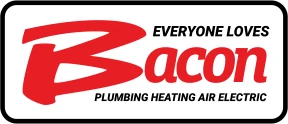Here in North Texas, air conditioning is practically a religion. During last winter’s brutal storm, heaters were in overdrive. A high energy bill is as sure of a bet as construction on I-35. As we enter the fall season and start to turn our air conditioners off and our heaters on, an important question comes to mind for many. Which uses more energy, the air conditioner or the heater?
To judge the energy consumption of each system, we need to take a look at the efficiency of each. To best do this, we should first cover how each system works.
How does an air conditioner work?
If you think back to your high school science class, you might remember your teacher explaining the concept of heat molecules. Heat molecules move faster than cold molecules. The faster the molecules move, the more energy they create.
So, when you turn on your air conditioner, you are essentially removing the heat energy from inside your home. According to the Public Utility District, your HVAC unit uses electricity to compress refrigerant, which increases pressure and its ability to hold heat. Then, a condenser releases the heat energy from the refrigerant to the outside air. The condenser coil decreases in temperature, causing the refrigerant to condense and liquefy. This refrigerant is then transported via copper tubing into your home.
How does a heater work?
The process to heat your home is a lot less complicated. More often than not, your home’s furnace burns fuel like natural gas, which heats a metal heat exchanger. Air is then cycled around this hot metal and forced through your home’s ductwork and into your space.
Now you might be thinking the air conditioner must use more energy because the process is more complicated, meaning more energy use. Well, research from the University of Michigan’s Michael Sivak finds that to the surprise of many, air conditioners are more energy-efficient than furnaces or boilers. Another way of stating this is that it takes less energy to cool down an interior space by one degree than to heat it by one degree. This is the case because it takes less energy to transfer heat (air conditioners) than to generate heat (furnaces and boilers).”
Many Texas homes weren’t built to retain heat but rather expel it so you don’t burn up on those triple-digit summer days.
To perform at maximum efficiency in the summer or winter, you must properly maintain your HVAC unit. A poorly maintained unit is likely to develop more severe issues that can lead to breakdowns or, in some cases, replacement. So, if you’ve noticed your HVAC unit isn’t running as efficiently as it used to, give Bacon a call. We’ll send one of our certified technicians to get your unit back to optimum performance.



